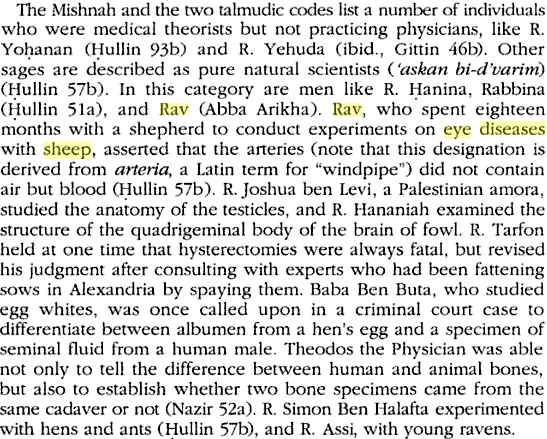Should one study secular subjects, independently of Torah?
Parshas Truma: Maharsham – A Talmid Chochom Must Have Worldly Wisdom The Menora had seven branches, but needed to be made out of one solid piece of gold that was hammered into shape. Why was this so essential? Why couldn’t it be made out of separate chunks of gold to make it easier to make?
The Maharsham (Tcheiles Mordechai) explains that these seven branches represent the seven secular wisdoms of the world. The Menora represents Torah and a talmid chochom must know all these wisdoms. If each branch was developed separately and then added to the menora, one would think that a talmid chochom must study each one of these subjects independently in order to complete his wisdom.
Hashem cmmanded Moshe to make the seven branches by shaping it out of one piece, the Torah. One must study Torah, and from plumbing the depths of the Torah he can know all the wisdom of the world, if he is willing to work hard and bang and shape himself.
You can see this Maharsham inside, in Techelet Mordechai on parashat Terumah:
“In Shemot Rabba and in Rashi, that Moshe had difficulty with the form of the menorah, and Hashem showed him a menorah of fire. And there is to say that behold, this that it was made all of molten gold, and was not made piece by piece, but was rather hammered with a sledgehammer — it appears to me that the seven branches of the menorah hint at the seven branches of wisdom. And that it should not arise in one’s mind that a talmid chacham needs to learn each one by itself. This is not so, for in the Torah is hidden all wisdom, and if he merits it, he will attain all of it from the Torah. And in Shas, in the first perek of Bechorot (8a), Rabbi Yehoshua ben Chananya derived the gestation period for a snake, something which the scholars of philosophy were unable to attain! And since the snake caused sin to come to the world and brought death to the world, and the Torah is the Tree of Life, to fix the sin of the snake, whose gestation is seven years, therefore the Menorah was made of gold and hammered with a sledgehammer to hammer out {להפשיט} the seven branches. And this is what is stated {Yirmeyahu 23:29}:
| כט הֲלוֹא כֹה דְבָרִי כָּאֵשׁ, נְאֻם-ה; וּכְפַטִּישׁ, יְפֹצֵץ סָלַע. {ס} | 29 Is not My word like as fire? saith the LORD; and like a hammer that breaketh the rock in pieces? {S} |
And Moshe did not understand the intent behind this. Therefore he showed him the menorah of fire, which is like a hammer which breaketh the rock in pieces, and out of which all spreads.”
This ends the Maharasham.
Yet, I wonder if that is indeed true. Here is a non-comprehensive list of Tannaim and Amoraim who did not get their all their secular knowledge from the Torah, but rather by study or consulting secular experts, from the book Medicine in the Bible and the Talmud, by Fred Rosner:
More than that. It is funny how everyone always cites this gemara about Rabbi Yehoshua ben Chananya as comprehensive proof that you can get all knowledge from the Torah. While this may indeed be the intent of the statement, as a matter of fact, the gestation period of the snake is NOT seven years. And the gestation period of other animals listed in that gemara are also off! See here and here.
Furthermore, we have practical experience of rabbis who did NOT gain their knowledge from secular study, but from the Torah. The result is a gadol who believes that Jews have a different number of teeth than gentiles. And people who believe as a matter of faith, based on a Malbim and a Chasam Sofer, that a pomegranate has exactly 613 seeds. Torah scholars do need to study secular subjects, in order to be familiar enough with metzius to pasken.
Nowadays, we have the luxury of studying secular subjects in a kosher Torah atmosphere, and it need not be a threat to our faith. The Maharsham, Rabbi Shalom Mordechai Schwadron, did not have this luxury. He had to contend with haskalah and early Reform. But it would be an error to take a polemic written in one intellectual and social environment and blindly apply it to our own.
The seven branches of wisdom he is referring to, by the way, are the trivium and the quadrivium. These are:
- grammar, rhetoric, logic, arithmetic, music, geometry and astronomy.
But those are a result of a historical accident, not because there are intrinsically precisely seven subjects.


